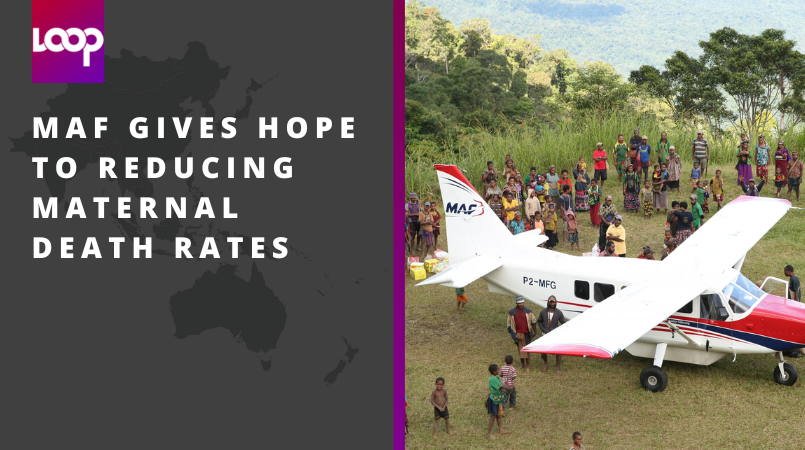
Mission Aviation Fellowship (MAF) and remote health workers of Fiyak village in West Sepik have witnessed many a maternity-related death. With a lack of access to proper health care facilities, women and newborn babies dying during childbirth is high.
According to the World Health Organization (WHO), for every 1000 births in PNG, as many as nine mothers and 24 newborn babies die. Papua New Guinea has the highest rate of maternal and newborn mortality in WHO’s Western Pacific Region.
With no proper road access and safe airstrips, the only way to reach health services is a perilous boat journey.
Recently, the people of Fiyak celebrated when an MAF plane made its first official landing on the Fiyak airstrip. The community rebuilt the airstrip. They were trained and equipped by the Rural Airstrip Agency (RAA).
A local woman named Siani recalled the time when she feared travelling by canoe to the nearest health facility to deliver her baby.
“It is a frightening experience for mothers to travel three days by canoe just to deliver our babies at the proper health centre. So many of us choose to have our babies where we are comfortable at home, but then unassisted delivery also leads to the loss of lives,” Siani said.
For women who choose to stay and deliver their baby in Fiyak, they would have to do so without proper midwifery assistance. The reality is that mothers are also at risk of losing their lives and their babies as well.
Community Leader, Jeff Kukilim, shared the struggles that Fiyak faced in the past three and a half years without access to basic services.
“Our remote health centre was greatly affected because we could not receive nor access medical supplies and transport for patients who were critically injured,” said Kukilim.
RAA Technical Advisor, Jonny Watson, said the organization enables the community to maintain their airstrips, but it is the communities that take the initiative to fix their airstrip.
